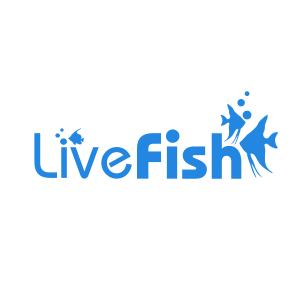Clownfish Sebae - Medium
Sebae Clownfish is an excellent entry point into the world of reef tanks. They are fascinating fish, which is exciting and will make keeping this species even for the first time a joy.
The Sebae clownfish has two broad white body stripes along with a brown to black body colour. The second dorsal fin is covered by the second body stripe. The mouth, pelvic fin, belly, anal fin, caudal peduncle, and caudal fin of Sebae Clownfish are all coloured yellow.
The Sebae clownfish are hermaphrodites in succession. This implies that they will initially develop into males, with the option to change to females if the dominant female dies. At the age of two, they normally reach sexual maturity. The males of these fish usually fertilise the females' eggs before releasing them into the ocean during mating. In two days, the eggs will hatch, and the larvae will spend some time with their mother.
The Arabian Sea and the Indian Ocean is the natural habitat of Sebae Clownfish. This extends east to Sumatra and Java, north to Iran, south to the Maldives, and west to Aden. In Sri Lanka, the bulk of the trade's collection is done.
Tank Recommendations for Sebae Clownfish
Captive-bred clownfish can live in a reef aquarium without an anemone. But it's amazing to watch the symbiotic interaction that develops when clownfish and anemone are kept together. Many hobbyists keep host anemones, which Sebae Clownfish will accept. Haddon's Carpet Anemone (Stichodactyla haddoni), a native sea anemone, or the resilient Bubble Tip Anemone are our two top picks.
Clownfish should not be kept in an aquarium that is too small. If the clownfish are forced to live in a confined space, they will experience stress. Instead it's preferable to provide them with a large tank. We recommend that you keep your Clownfish in at least a 30-gallon or 114 litre aquarium. Then for each extra clownfish you should allow 10 gallons (35 Litres) more of water.
It would be ideal if you consistently maintained the same water factors. A partial water change is usually advised every two weeks. Suitable abrasive cleaning chemicals are used to eliminate visible algae. You can determine whether something is wrong by looking into the fish's unusual behaviour and feeding changes. The majority of clownfish can recover quickly from small setbacks, but they can still contract illnesses like ick or dropsy.
Suitable Tank Buddies
The Sabae Clownfish is one of the calmest clownfish, but it is also the one that is most likely to be picked on. You should keep them away from other aggressive clownfish species, especially those from the Tomato (Ephippium), Maroon, and Clarkii complexes.
Usually Compatible
Clownfish make good tankmates since they are calm and well-behaved. Hawkfish, Dwarf Angelfish, Butterflyfish, Pufferfish, Dartfish, Blennies, Angelfish, Tangs, Hermit crabs, and Blood Red Fire Shrimp are all examples of complementary fish.
Sometime Compatible
Clownfish are one of the few species that can be housed with Seahorses and Pipefish, just ensure they have enough food. Triggerfish, and Wrasse can also make good tank mates depending on how your aquarium is set up.
Rarely Compatible
However, Lionfish, Scorpionfish, Sharks, Snappers, Eels, Groupers rarely get along with Clownfish mainly due to the fact the bigger fish see the Clownfish as a meal.
Feeding your Sebae Clownfish
The majority of clownfish are omnivorous feeders, which means they will eat a range of different kinds of food. Clownfish typically eat algae, polychaete worms, crustaceans (including copepods and amphipods). If there is an anemone in the tank they will also eat leftover food from anemone's meals. Captive-bred Clownfish will accept most foods including pellets, flake food and frozen shrimp.
| Scientific Name | Amphiprion sebae |
|---|---|
| Care Level | Easy |
| Common Names | Sebae Clownfish |
| Diet | Omnivore |
| Fish Family | Pomacentridae |
| Lifespan (years) | 12 |
| Max. Length (cm) | 14 |
| Min. Tank Volume (l) | 114 |
| Origin | The Arabian Sea and the Indian Ocean |
| Reef Safe | Yes |
| Sociability | Peaceful |
| Venomous | No |
| Water Conditions | sg 1.020-1.025, 72-78°F (22ºC-25ºC), dKH 8-12, pH 8.1-8.4 |



